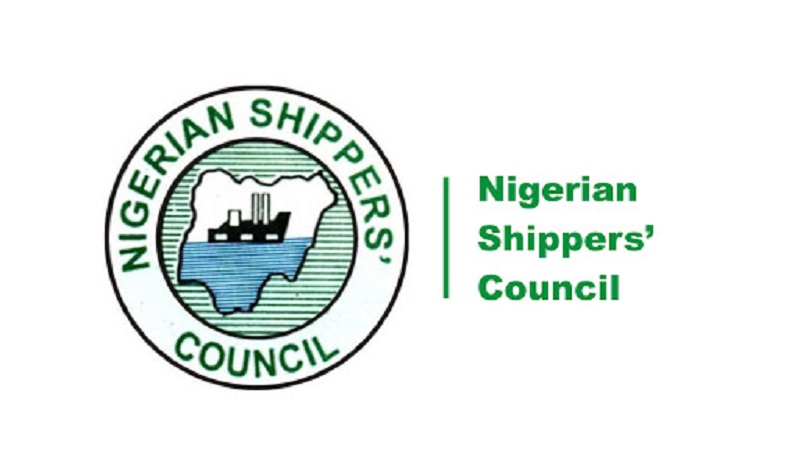
The the Executive Secretary, Nigerian Shippers Council (NSC), Dr. Akutah Pius Ukeyima has said the 2 per cent funding that it currently gets from the 7 percent Port Development Levy (PDL) is not only inadequate to meet the scale of the Council’s statutory responsibilities but also lacks a firm legislative backing, leaving the Council’s financial base unstable.
Akutah spoke yesterday, when the Senate Committee on Marine Transport paid an oversight visit to the Council.
He urged the Senate Committee to accelerate enactment of the Nigerian Port Economic Regulation Act (NIPERA) Bill 2025, into law, and also champion the Council’s financial independence through the 1 percent Freight Stabilisation Fee (FSF)
According to him: “Permit me first to commend His Excellency, President Bola Ahmed Tinubu whose Renewed Hope Agenda has provided the vision and political will to reform Nigeria’s Marine and Blue Economy sector.
“We also salute the Honourable Minister of Marine and Blue Economy, Adegboyega Oyetola for his dynamic leadership, which has guided and supported the Council in repositioning itself as a driver of trade facilitation, regulation, and growth.
“Distinguished Senators, I must specially acknowledge the National Assembly, and in particular this Committee, for your tireless collaboration with the Council. Your historic role in the passage of the Nigerian Port Economic Regulation Act (NIPERA) Bill, 2025, is a milestone that will forever reshape Nigeria’s maritime industry.
“Chairman and Distinguished Senators, under the guidance of the Ministry and in partnership with the National Assembly, the Council has pursued reforms with measurable impact in: Streamlining port processes and reducing logistics bottlenecks to ease doing business; Coordinating Transport Infrastructure such as Inland Dry Ports and Vehicle Transit Areas to expand port services to the hinterland; Regulating tariffs and charges to protect shippers and promote transparency; and supporting Nigeria’s readiness for AfCFTA by developing dispute resolution systems, reducing trade costs, and enhancing competitiveness.
“These reforms, backed by your oversight, reflect our shared commitment to make Nigeria a trade and maritime hub for the region.
“Distinguished Senators, we are equally proud to highlight completed projects at Shippers’ Towers which demonstrate prudent resource utilisation and our commitment to creating a modern, functional work environment.
“These proposed projects are designed to guarantee safety, enhance operational efficiency, and ensure Shippers’ Towers reflects the dignity of a national economic regulator.”
On challenges confronting the Port Economic regulator, Dr. Akutah revealed that, “While we have made progress, challenges remain, particularly in funding and sustaining the independence of the Council.
“At present, the Council relies largely on the 2 percent from the 7 percent Port Development Levy (PDL) as its main source of funding. “However, this levy is not only inadequate to meet the scale of our statutory responsibilities but also lacks a firm legislative backing, leaving the Council’s financial base unstable.
“To address this, we respectfully seek your urgent support in two critical areas: Accelerated enactment of the NIPERA Bill into law to consolidate the Council’s mandate, strengthen investor confidence, and ensure effective enforcement of economic regulation; and champion the Council’s financial independence through the 1 percent Freight Stabilisation Fee. “This fee, established under Section I. (3) of 1995 and Section 7(2)(c) of the NSC Act, is not a tax but a statutory service charge for regulatory functions such as tariff monitoring, cost regulation, cargo protection, dispute resolution, and trade facilitation.
“Distinguished Senators, let me stress that the fee does not conflict with the Nigerian Tax Administration Act (NTA) 2025. The Act harmonises collection, but it does not abolish legally established service-based revenue streams. On the contrary, this fee complements the unified collection framework, ensuring the Council has sustainable funding while all revenues are duly collected through the Nigeria Revenue Service and remitted into the Consolidated Revenue Fund.
“This model is consistent with global best practice, from Ghana to Kenya to South Africa, and aligns with the WTO Trade Facilitation Agreement, which allows charges proportionate to services rendered. Without this dedicated stream, the Council, and NIPERA when fully operational, risks financial incapacitation, jeopardising both our reform gains and Nigeria’s readiness under AfCFTA.”
In his remarks, the Chairman, Senate Committee on Marine Transport, Senator Wasiu Sanni Eshinlokun said that the performance of the Nigerian Shippers’ Council as a port economic regulator and a key driver of efficiency in shipping is central to Nigeria’s economic aspirations.
In the words: “The maritime industry, and particularly shipping, is a catalyst for national development. It contributes significantly to job creation, industrial growth, and foreign exchange aims. Therefore, the performance of the Nigerian Shippers’ Council as a port economic regulator and a key driver of efficiency in shipping is central to Nigeria’s economic aspirations.
As a committee, he said, “ we are determined to support these reforms and ensure that the Nigerian Shippers’ Council continues to deliver on its mandate. Our oversight today will afford the opportunity to engage constructively, review progress made, understand the challenges faced, and recommend pragmatic solutions that will enhance service delivery and boost economic growth.
Together with the Nigerian Shippers’ Council and our stakeholders, Eshinlokun said, we shall work to strengthen the shipping sub-sector as a driver of Nigeria’s economic prosperity.”


